Trung Vo
Finetuning LLMs for Automatic Form Interaction on Web-Browser in Selenium Testing Framework
Nov 19, 2025Abstract:Automated web application testing is a critical component of modern software development, with frameworks like Selenium widely adopted for validating functionality through browser automation. Among the essential aspects of such testing is the ability to interact with and validate web forms, a task that requires syntactically correct, executable scripts with high coverage of input fields. Despite its importance, this task remains underexplored in the context of large language models (LLMs), and no public benchmark or dataset exists to evaluate LLMs on form interaction generation systematically. This paper introduces a novel method for training LLMs to generate high-quality test cases in Selenium, specifically targeting form interaction testing. We curate both synthetic and human-annotated datasets for training and evaluation, covering diverse real-world forms and testing scenarios. We define clear metrics for syntax correctness, script executability, and input field coverage. Our empirical study demonstrates that our approach significantly outperforms strong baselines, including GPT-4o and other popular LLMs, across all evaluation metrics. Our work lays the groundwork for future research on LLM-based web testing and provides resources to support ongoing progress in this area.
VLSP 2025 MLQA-TSR Challenge: Vietnamese Multimodal Legal Question Answering on Traffic Sign Regulation
Oct 23, 2025Abstract:This paper presents the VLSP 2025 MLQA-TSR - the multimodal legal question answering on traffic sign regulation shared task at VLSP 2025. VLSP 2025 MLQA-TSR comprises two subtasks: multimodal legal retrieval and multimodal question answering. The goal is to advance research on Vietnamese multimodal legal text processing and to provide a benchmark dataset for building and evaluating intelligent systems in multimodal legal domains, with a focus on traffic sign regulation in Vietnam. The best-reported results on VLSP 2025 MLQA-TSR are an F2 score of 64.55% for multimodal legal retrieval and an accuracy of 86.30% for multimodal question answering.
Reflections from the 2024 Large Language Model (LLM) Hackathon for Applications in Materials Science and Chemistry
Nov 20, 2024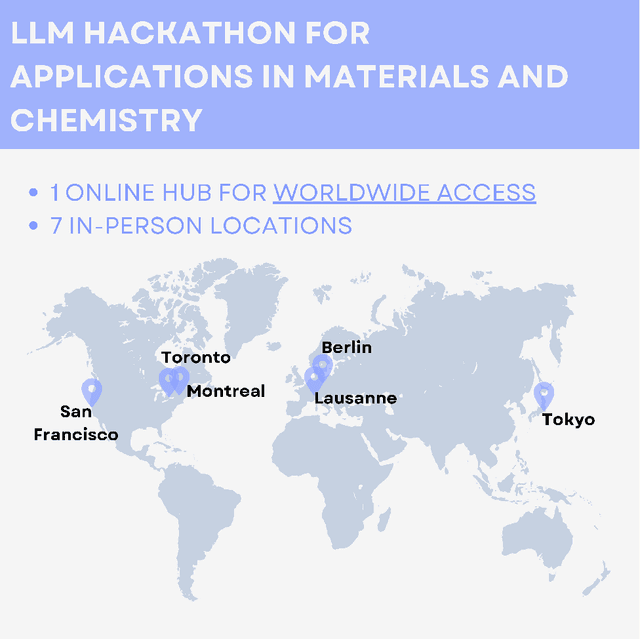
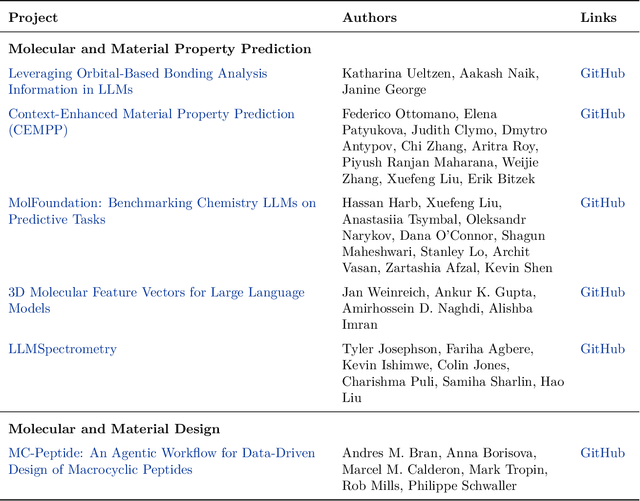
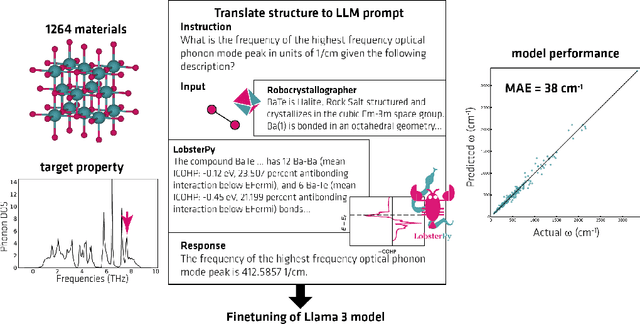

Abstract:Here, we present the outcomes from the second Large Language Model (LLM) Hackathon for Applications in Materials Science and Chemistry, which engaged participants across global hybrid locations, resulting in 34 team submissions. The submissions spanned seven key application areas and demonstrated the diverse utility of LLMs for applications in (1) molecular and material property prediction; (2) molecular and material design; (3) automation and novel interfaces; (4) scientific communication and education; (5) research data management and automation; (6) hypothesis generation and evaluation; and (7) knowledge extraction and reasoning from scientific literature. Each team submission is presented in a summary table with links to the code and as brief papers in the appendix. Beyond team results, we discuss the hackathon event and its hybrid format, which included physical hubs in Toronto, Montreal, San Francisco, Berlin, Lausanne, and Tokyo, alongside a global online hub to enable local and virtual collaboration. Overall, the event highlighted significant improvements in LLM capabilities since the previous year's hackathon, suggesting continued expansion of LLMs for applications in materials science and chemistry research. These outcomes demonstrate the dual utility of LLMs as both multipurpose models for diverse machine learning tasks and platforms for rapid prototyping custom applications in scientific research.
ZeFaV: Boosting Large Language Models for Zero-shot Fact Verification
Nov 18, 2024Abstract:In this paper, we propose ZeFaV - a zero-shot based fact-checking verification framework to enhance the performance on fact verification task of large language models by leveraging the in-context learning ability of large language models to extract the relations among the entities within a claim, re-organized the information from the evidence in a relationally logical form, and combine the above information with the original evidence to generate the context from which our fact-checking model provide verdicts for the input claims. We conducted empirical experiments to evaluate our approach on two multi-hop fact-checking datasets including HoVer and FEVEROUS, and achieved potential results results comparable to other state-of-the-art fact verification task methods.
VLSP 2023 -- LTER: A Summary of the Challenge on Legal Textual Entailment Recognition
Mar 06, 2024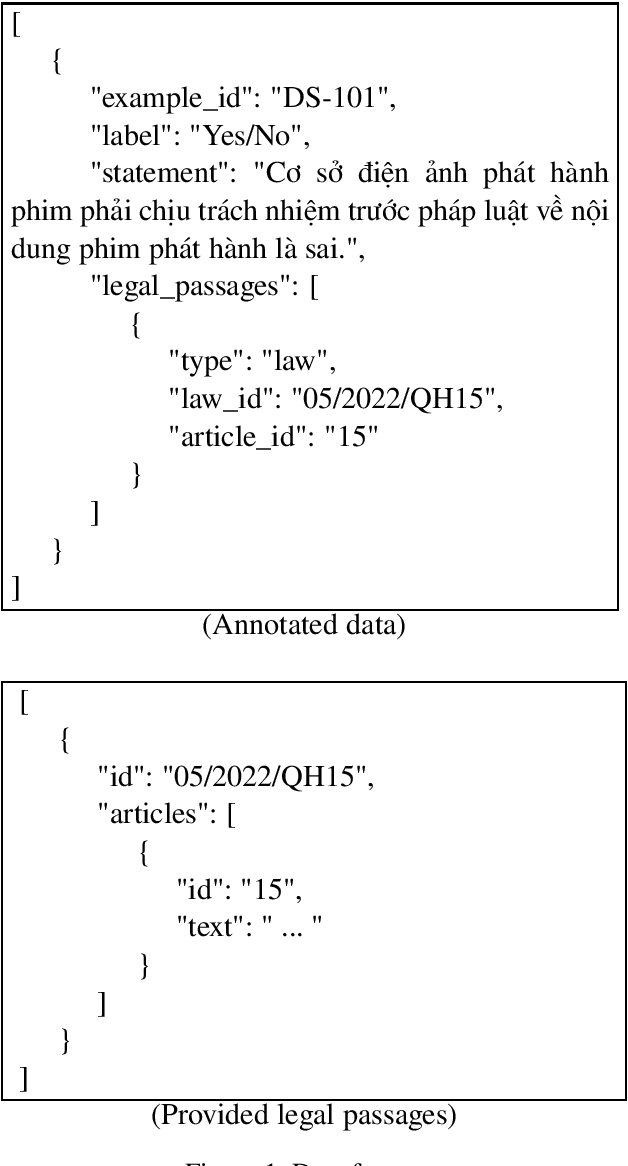
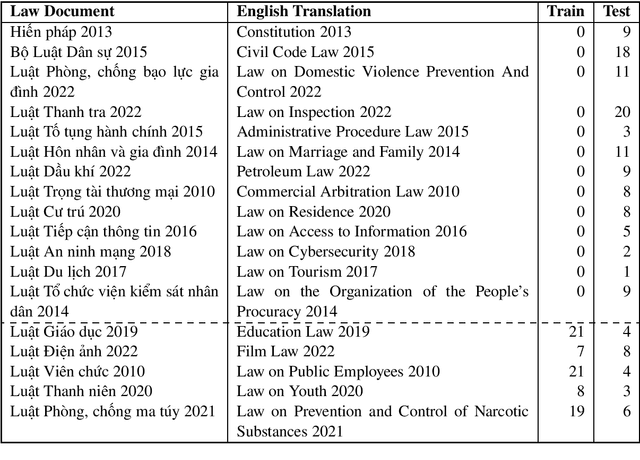
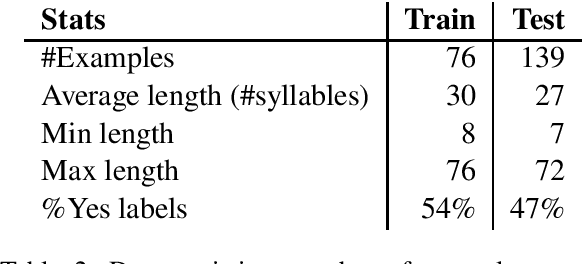
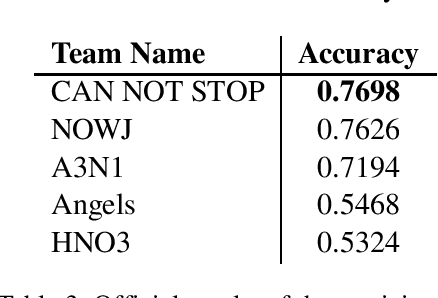
Abstract:In this new era of rapid AI development, especially in language processing, the demand for AI in the legal domain is increasingly critical. In the context where research in other languages such as English, Japanese, and Chinese has been well-established, we introduce the first fundamental research for the Vietnamese language in the legal domain: legal textual entailment recognition through the Vietnamese Language and Speech Processing workshop. In analyzing participants' results, we discuss certain linguistic aspects critical in the legal domain that pose challenges that need to be addressed.
 Add to Chrome
Add to Chrome Add to Firefox
Add to Firefox Add to Edge
Add to Edge